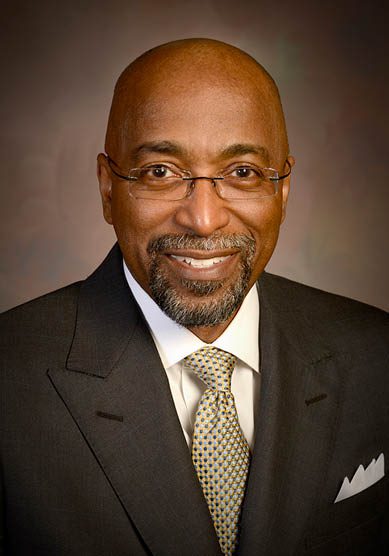Judge Foley and Justice Stewart Join Faculty as Adjunct Professors
Continuing a long tradition of attracting prominent members of the judiciary to its teaching ranks, UC Law SF has added two new accomplished jurists as faculty for the Spring 2021 term – Chief Judge of the U.S. Tax Court Judge Maurice Foley and California Court of Appeal Justice Therese Stewart.
Foley will teach a course called Creating Tax Law and Stewart will co-teach a Constitutional Cases seminar with returning faculty member and Ninth Circuit Court of Appeals Judge Marsha Berzon.
Foley, the first Black judge appointed to the nation’s tax court based in Washington, D.C., joins UC Law SF as the inaugural Center on Tax Law Adjunct Professor and Affiliated Scholar.
Prof. Heather Field, co-director of the UC Law SF Center on Tax Law, said Foley’s experience as a judge and leader in the tax field will provide invaluable benefits to the program and to students who are preparing for careers in tax. “Our students are extremely fortunate,” she said, “to have the chance to interact directly with someone of his stature.”
Stewart is well known for her work on the state’s marriage equality litigation before being appointed to the First District Court of Appeal six years ago. She will be filling big shoes—those of former California Supreme Court Justice Joseph Grodin, who is retiring from his role in teaching a Constitutional Cases seminar with Berzon.
Berzon called teaching with Grodin “an intellectual feast.” When she thought about who could bring students the same kind of fresh ideas and energy, along with state court experience, Stewart came to mind. The two first met decades ago when they were both lawyers participating in a Bar Association of San Francisco program designed to encourage high school students from underrepresented backgrounds to pursue college educations.
Grodin said he was delighted to hear of Stewart’s appointment. “She is smart and creative,” he said, “and I’m sure will make an exciting teacher.”
Stewart said she was honored to be asked to join Berzon in offering the popular course, which focuses on the art of judging. She also was glad to hear that Grodin will continue in a supplementary role, sharing his substantial expertise in state constitutional law.
As in the past, students will select a research topic from a list of pending cases in the U.S. Supreme Court, California Supreme Court, and Ninth Circuit, then write a bench memo detailing how they would rule in their case. Every week, the class will discuss one student’s draft opinion. And, following the existing model, Berzon and Stewart will bring in other judges, advocates, and academics who have first-hand experience with the issues being covered in class.
Gian Gualco-Nelson ’20 described the course as challenging and fun. He said it prepared him well for his judicial clerkships by giving him insight into how judges approach cases. “If you’re at all interested in constitutional issues,” he said, “this course is a field day.”
Stewart plans to take her guidance from Berzon, but will bring her own unique perspective influenced by her advocacy work. While working as a deputy city attorney for San Francisco City Attorney Dennis Herrera, she teamed up with the National Center for Lesbian Rights, Lambda Legal, the ACLU, and private attorneys to litigate the groundbreaking cases that paved the way for marriage equality in California.
“It’s going to be a very dynamic and somewhat different course,” Stewart said, “but it will build on what Justice Grodin and Judge Berzon created.”

